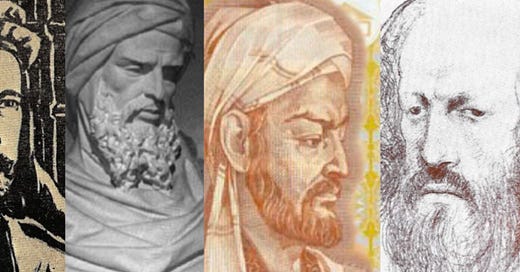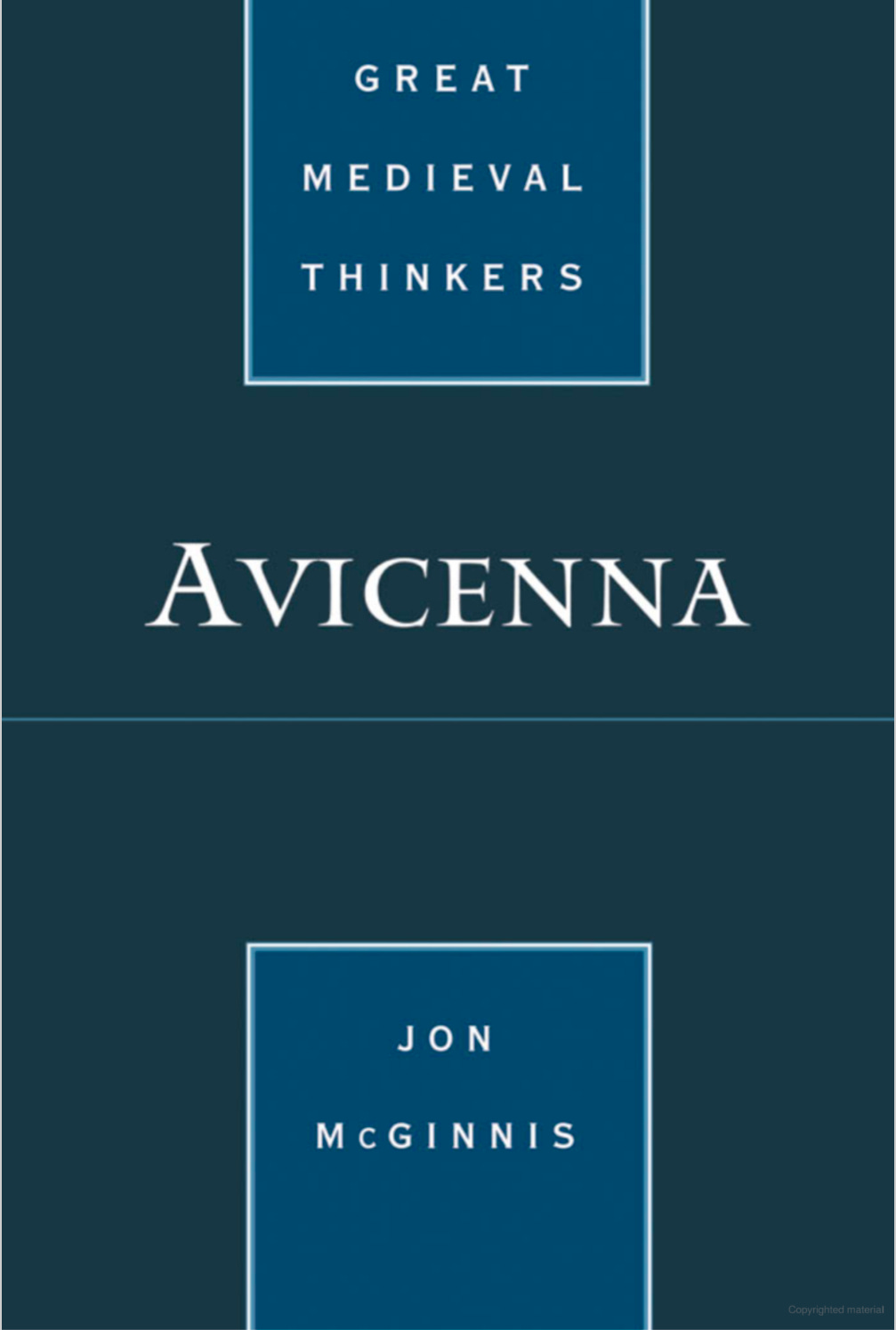Islamic philosophy: A Beginner's Guide
Four important subjects studied in Islamic philosophy
For a long time now, many people I've interacted with have shown great interest in Islamic philosophy, but have no clue where to start in their journey. In this article, I lay out the subjects one must study and recommend some books that I believe are worth reading.
The first crucial step is to study logic (mantiq). Studying logic, which is also known as the science of reasoning, immensely aids one in reasoning properly. Reasoning properly is crucial in life, let alone philosophy. The second step is regarding natural philosophy (tabi’iyat). One might think that natural philosophy is nothing but the study of physics. However, this is misleading. Although it is true that natural philosophy includes - in its scope - the study of physics, but it also includes psychology, biology, and chemistry.
The third step is the study of Metaphysics (ilahiyat). Metaphysics, just like mathematics and natural philosophy, is also considered a science. It is the science of being qua being. In other words, it is the science of things considered as beings. The scope of metaphysics is the most general amongst all of the sciences. The forth and final step is the study of Theology, which is a specific branch of Metaphysics. Theology deals with topics such God, Prophethood, Justice, Resurrection, the afterlife, etc.
Logic
There are many excellent books to study logic. The ones I recommend here are related to traditional logic as opposed to modern symbolic logic. The reason for this is that the former touches on aspects that are not covered in modern symbolic logic. Moreover, having a good grasp of traditional logic is crucial to understand the work of early Islamic philosophers (it was the logic applied during their time). The following are a few really good books on logic.
Isagoge: A classical primer on Logic
This is an excellent introduction to traditional logic. The translation is also very good. It goes over many crucial notions, such as the relationship between meaning and language, various kinds of arguments, the special features of propositions, and much more.
An introduction to traditional logic: classical reasoning for contemporary minds
This is also a very good book. It also covers more than the Isagoge (this isn't surprising as the Isagoge is a relatively small book). What I particularly like about this book is that, at the end of every chapter, there's a set of practice-questions. Working on these practice-questions can be helpful in bringing your thoughts together and achieving an understanding in your own creative way.
Natural philosophy
Natural philosophy is a fascinating subject. There has been many books written on it, but the following classical works are important to read in order to get good grasp of the subject.
Hidayat al-Hikmah
This classical book, written by the great al-Abhari, is based on the peripatetic (mashai) philosophical system, a system of thought that can be traced all the way back to Aristotle. Topics such as atomism, substance and accidents, hylomorphism, etc., are discussed in it. In my opinion, it contains most of what you need to know regarding natural philosophy.
The Physics of The Healing
The Physics of The Healing was written by the great Shaykh, Avicenna. It makes up only a part of his magnum opus, The Cure. I recommend that one begins with a secondary work, such as the Hidayat al-Hikmah, before delving into The Physics, as it isn't the easiest book to read. Nevertheless, studying this book will be greatly beneficial in your journey.
Natural Philosophy: On Retrieving a Lost Disciplinary Imaginary
This book was recommended by a good friend of mine. I haven't read it myself, but I've heard good things about it. I skimmed through the table of contents and saw that it covers many of the relevant topics a student must be familiar with, so I thought it would be a good addition to the list. Moreover, Alistair McGrath is an excellent author, so that's a bonus.
Metaphysics
The word ‘Ilahiyyat’ means ‘divine things’. So, it's natural to infer that metaphysics deals with topics such as God, Intellects, Souls, etc. The following books discuss these topics at length.
The Metaphysics of The Healing
This book is also part of Avicenna's The Cure. It is truly a great work. I enjoyed reading a good portion of it (I haven't completed it yet). Like The Physics, this book is very dense and not so easy to read. Of course, that shouldn't discourage you from attempting to read it. It simply might take you more time than usual to complete the entire book (you'll be thinking a lot throughout the reading).
Great Medieval Thinkers: Avicenna
This book is definitely at the top of my list. I learned a lot from it. McGinnis does a really good job making complicated issues simple. Although this work is not strictly on Avicenna’s metaphysics, the sixth and seventh chapters are. I believe that one will benefit a lot from reading these chapters.
Classical Arabic Philosophy: An Anthology of Sources
This is another book that was recommended to me. It's contains many selections of primary texts on various subjects, including metaphysics.
Theology
Theology is, according to Islamic philosophers, a specific kind of metaphysics. It deals with topics related to God, Prophethood, the afterlife, Justice, and much more. The following is a list of a few books I think are worth reading.
The Oxford Handbook of Islamic Theology
This a great Handbook to become acquainted with a plethora of theological perspectives, such as those of the asharites, maturidis, mu'tazila, and more.
Theological Instructions
This work is regarding the shia theological perspective. Ayatollah Yazdi does a great job explaining the various theological topics in a clear and simplified manner. I highly recommend this one.
The Book of Monotheism
The final book on the list is al-Maturidi’s Book of Monotheism. The Maturidi theological school of thought is amongst the dominant theological schools in Sunni Islam. Moreover, this english translation by Sulaiman Ahmed is very good. I learned a lot from this work. I highly recommend it.
I hope the reader finds some of these books to be helpful in their journey to learn Islamic philosophy. Also, I'm sure there will be some people who think that some really good books were left out. If so, make sure to recommend those books in the comment section so we all benefit.
















As a Muslim physics and philosophy student, this is the perfect reading list. Thank you for the recommendations
Great article. Sharh Al-aqaid is worthy of note:
A Commentary on the Creed of Islam: Sa'd al-Din al-Taftazani on the Creed of Najm al-Din al-Nasafi, translated with introduction and notes by Earl Edgar Elder, New York: Columbia University Press, and London: Oxford University Press, 1950.